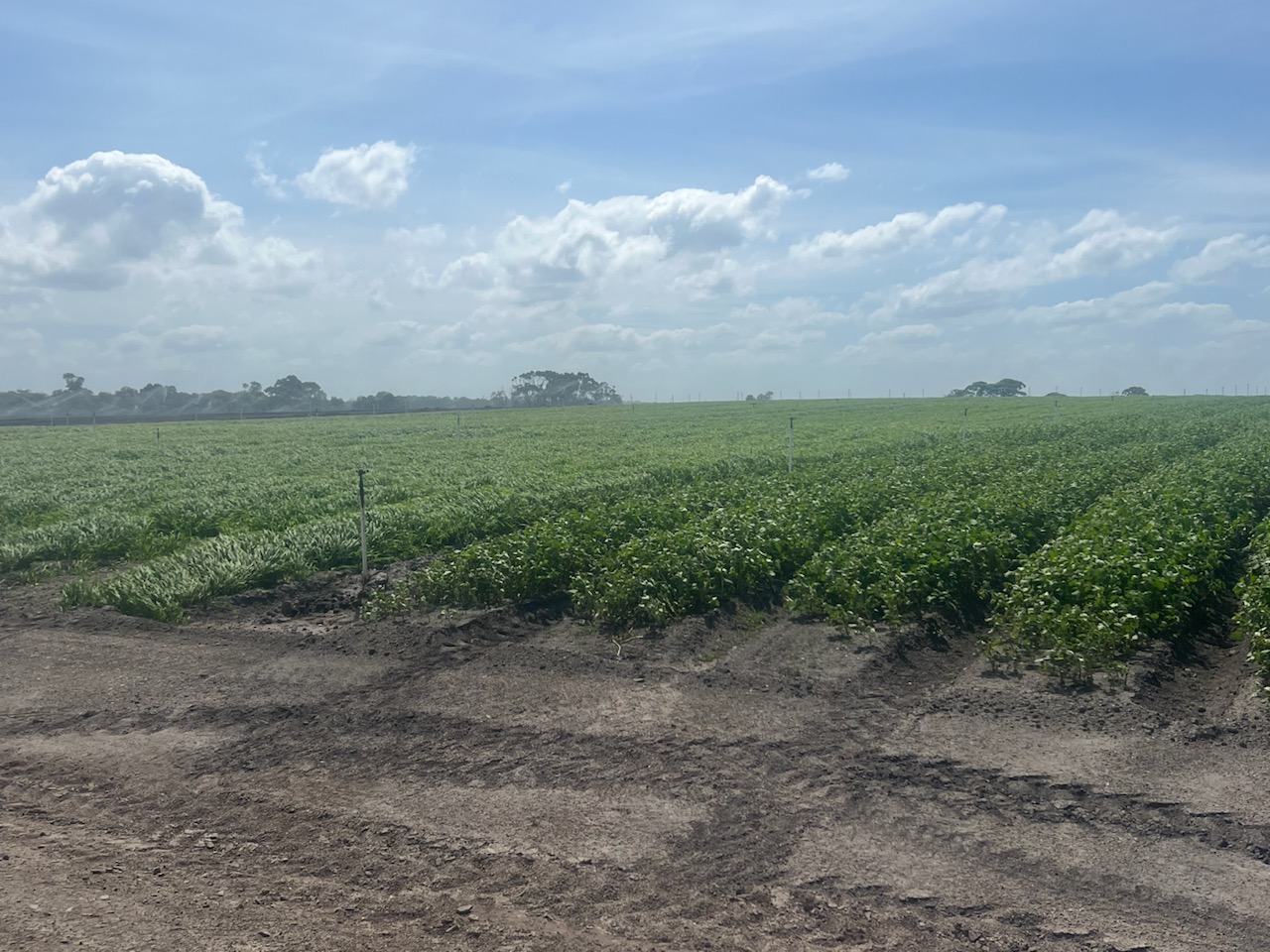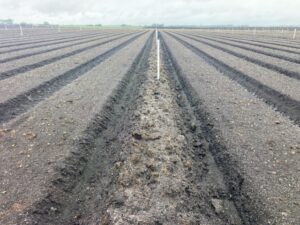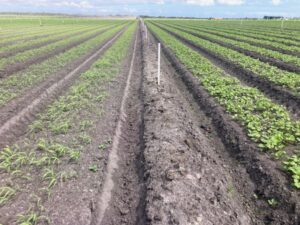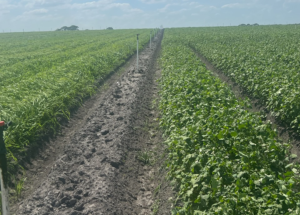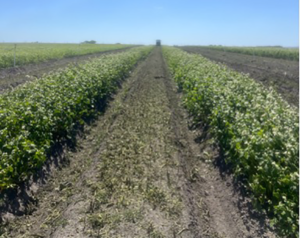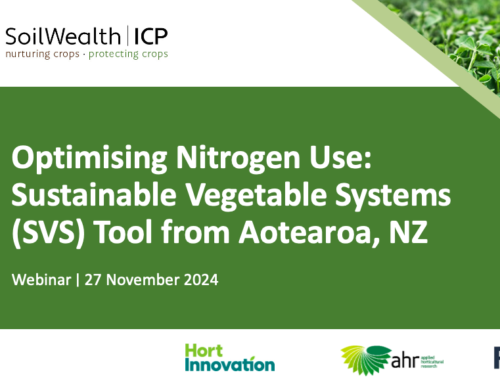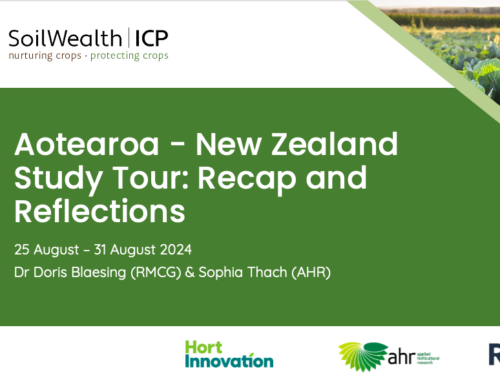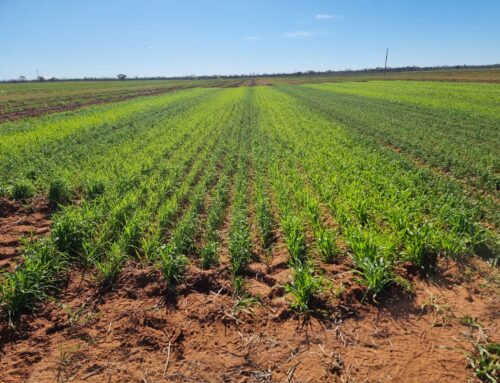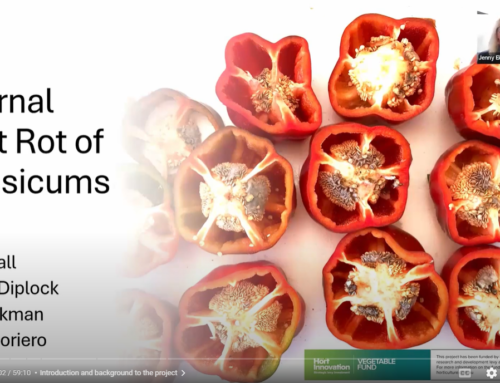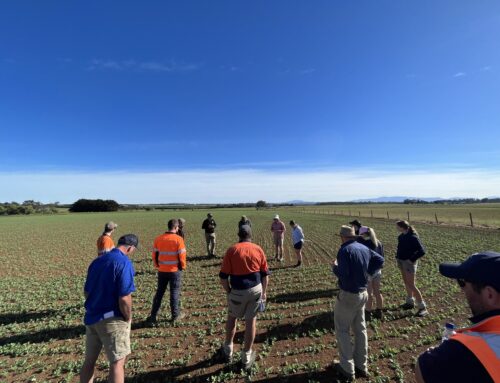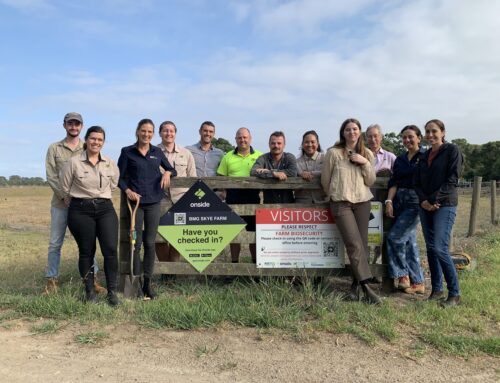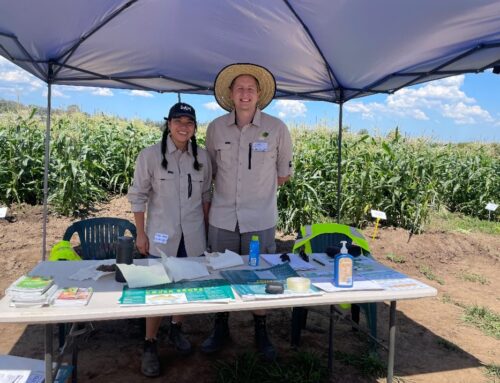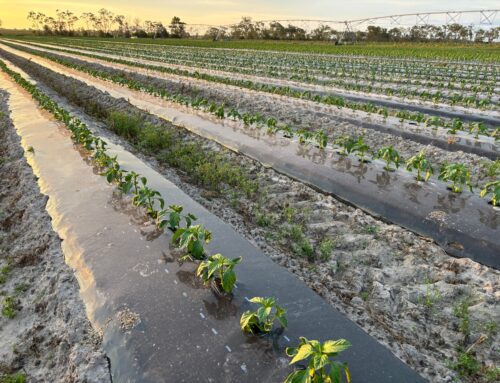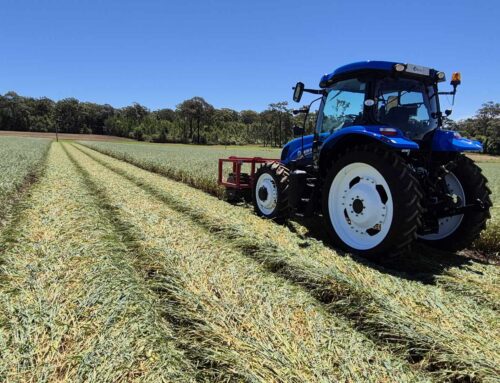Our Tarwin demonstration site in South Gippsland, Victoria is focused on maintaining soil carbon in a clay loam greenfield site which is gradually being converted from pasture to a vegetable production system rotation (predominantly celery, spinach and leek).
High organic carbon levels are associated with higher soil microbial populations, good nutrient holding capacity and nutritional cycling ability. The soil tests taken at the commencement of the trial in June 2023 (across both the trial and control blocks) had high organic carbon levels ranging from 5.5-5.9%.
To maintain and increase these existing organic carbon levels and improve the physical structure of the soils, as indicated by the carbon to magnesium ratio, the trial applied compost and green cover crops including a mix of Buckwheat (Faopyrum esculentum) and vetch and Japanese Millet (Echinochloa esculenta). The cover crop also aims to provide weed competition and improve nitrogen and phosphorus nutrient foraging, as currently the available nitrate and phosphorus levels in the soil are low.
- Cover crop at germination (17 Jan 2024)
- Cover crop growth (31 Jan 2024)
- Buckwheat and Millet cover crop growth (20 Feb 2024)
- Buckwheat on the day of termination and cultivation (27 Feb 2024)
Investigating soil biology
Soil biology tests were also taken at the beginning of the trial to understand the microbial condition of the production system. Unsurprisingly the cultivated block, which has been subjected to deep ripping, bed forming and sub-surface drainage excavation, had a lower microbial biodiversity and a higher abundance of soil-borne pathogens including sclerotinia, verticillium and rhizoctonia compared to the adjacent pasture site yet to be developed.
The soil health rating, which considers the abundance of arbuscular mycorrhizal fungi, bacteria, fungi, mesofauna and protists, was highest for the non-cropped area. The limited disturbance to the soil in the non-cropped site compared to the cultivated site, could explain the high microbial population levels.
Due to extremely wet weather conditions, there was a significant delay in spreading of the lime and sowing of the cover crop. The Buckwheat and Millet was sown in mid-January 2024 and the Buckwheat was terminated late February 2024.
Stay tuned for further updates as the site is planted to its first spinach cash crop over the coming month.

